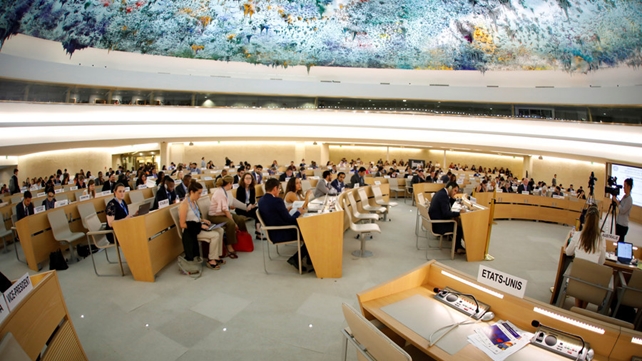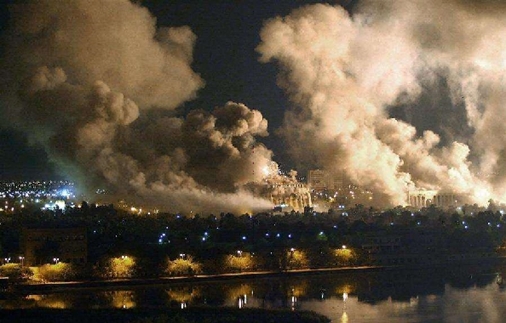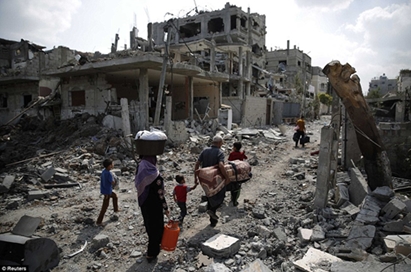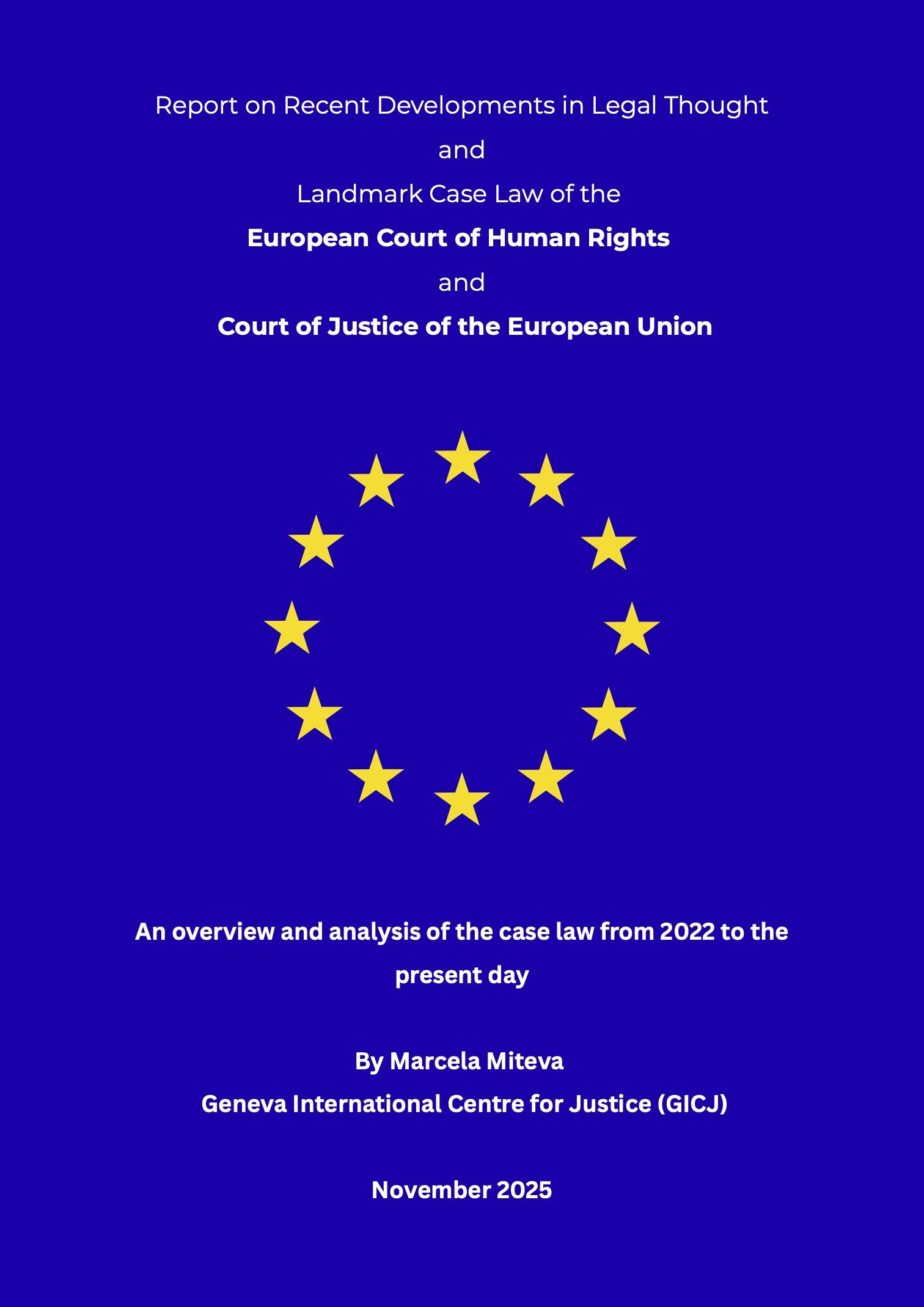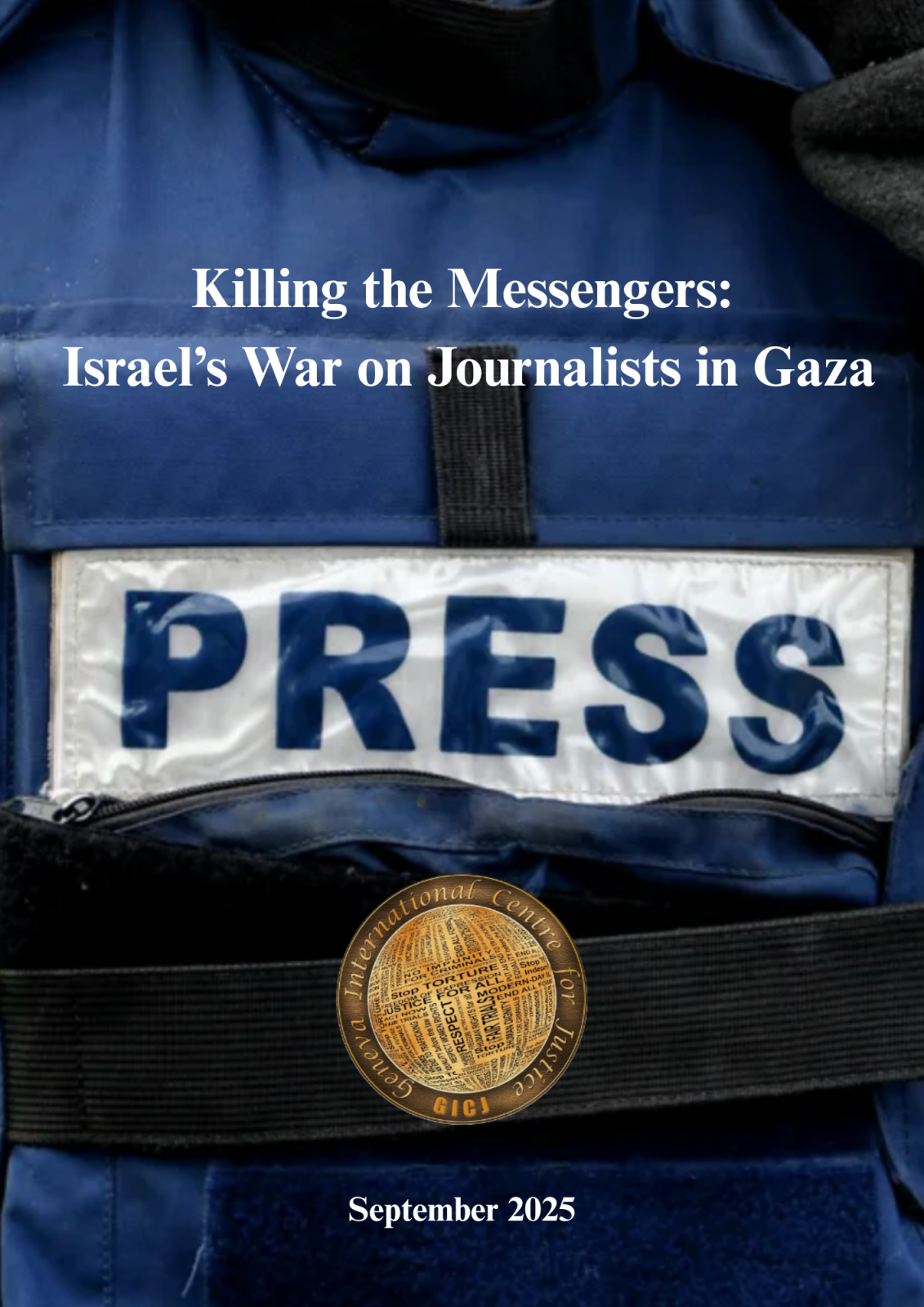22.06.2018
Human Rights Council
Thirty-Eighth Session, 18 June to 6 July 2018
The US Ambassador to the UN, Nikki Haley, announced on June 19 that the United States will withdraw from Human Rights Council, calling the UN’s top human rights body “a hypocritical and self-serving organisation that makes a mockery of human rights,” and accusing it of “chronic bias” against Israel on Israeli rights violations in occupied Palestinian territories. The United States, she said, will no longer participate in the ongoing HRC session or in future sessions, meaning that it will not serve out the remainder of its term in the Council.
Geneva International Centre for Justice (GICJ) regrets this American withdrawal from the UN’s human rights body, which was set up to protect and monitor human rights situations around the world.
|
Photo source: RT.com |
The United States, as a superpower and the largest funder of the UN System, has international responsibilities and commitments, which make it imperative on Washington to ensure its participation in multilateral forums to help the world resolve conflict, address chronic issues, and fulfil America’s role within the international system.
GICJ believes that, by stepping back from its multilateral human rights engagements, the United States has thrown its human rights record into spotlight.
Like other nations of the world, America has struggled with the implementation of human rights. On one hand, many basic human rights have long been protected in its Constitution since the Bill of Rights amendments were adopted in 1791. It has promoted the cause of freedom and liberty, as in its support for the people of Bosnia-Herzegovina in their struggle for freedom. On the other hand, the US has not consistently recognized or respected the human rights of segments of its own population or citizens of other countries such as Vietnam, Iraq, and Afghanistan.
Since the abolition of slavery in the United States in 1865 and the Civil Rights Movement in the 1960s and 1970s, the rights of African-Americans in the US have continued to be violated, especially the fundamental right to life and security as enshrined in the International Convention on Civil and Political Rights. The UN Human Rights Council itself noted the existence of a racial disparity in the cases of US citizens on death row and in victims of gun-related violence.
|
Photo source: History.com |
American journalists and human rights activists extensively documented the US invasion of the sovereign Vietnamese state in 1965 and the widespread use of chemical warfare directed at civilians by the United States. Agent Orange continues to affect parts of the Vietnamese population as well as the environment today. Major violations committed by the United States in Vietnam, such as the My Lai Massacre, are dangerously close to the legal definition of war crimes under international law and stand as a contradiction to Ambassador Haley’s claim that United States enjoys a “proud legacy of liberating oppressed people and defeating tyranny throughout the world.” While the Ambassador may be right in some cases, like the former Yugoslavia and the former states of the Soviet Union, this claim faces stiff challenge in Vietnam.
As a direct response to 9/11, the United States invaded Afghanistan, with the stated aim of “protecting national security and fundamental rights & freedoms.” In doing so, however, the US Armed Forces repeatedly violated the laws of war, i.e., International Humanitarian Law and the International Human Rights Law, in the form of arbitrary arrests and detentions.
The invasion and total destruction of a modern country like Iraq in 2003 is another stark example. At least two successive US governments sanctioned the use of napalm and white phosphorous against innocent Iraqi civilians during its illegal occupation. The American-led occupation of Iraq promoted a sectarian war by turning the Iraqis against each other, galvanising the Shias to form militias, and then arming these militias with American weapons and spending American taxpayer money on training them, and finally setting them loose to silence any and all Sunni dissent.
|
US-led invasion and occupation of Iraq that lead to total destruction. |
American human rights violations have been somewhat balanced by a strong strain in US policymaking circles to scrutinise its own record on human rights and make self-corrections, like the one done this week on the abhorrent policy of separating children from immigrant parents. While this is commendable, it provides further evidence that Washington needs to be part of such multilateral forums on human rights as the UNHRC. Any other decision by the United States does not reflect the values it espouses and constitutes a setback for the work of hundreds of human rights experts, activists and defenders who look upon the HRC to lead the global human rights agenda.
Ambassador Haley’s statement that the Council embodies “a protector of human rights abusers and a cesspool of political bias” against Israel is altogether misguided. The Human Rights Council has always focused its work on various States with human rights problems. Notably, during the current session (the 38th session, June-July 2018), the Council has focused particularly on Burundi, Myanmar, the Syrian Arab Republic, the Republic of Congo, Ukraine, Georgia, Haiti, Eritrea and Belarus. Most of these States have been the centre of the Council's attention for many years. The reason behind this is not any malice on the part of the Council towards them, but rather the alarming human rights situation in their territories. This is also the reason behind the continued scrutiny of the Council towards Israel, as the suffering of the Palestinian people has been long-standing with no apparent improvement in Israel’s stance.
This policy of the US implies severe double standards when it comes to human rights. Despite expecting the international community to fully abide by its human rights obligations, it conveniently turns a blind eye to the gross violations systematically perpetrated by Israel in the Occupied Palestinian territory. Furthermore, Trump’s decision to relocate the US embassy and officially recognise Jerusalem as the capital of Israel reveals that the US is not – and has never been – an honest broker in the Israel-Palestine conflict.
|
A Palestinian family carries their belongings towards the remnants of their destroyed home after returning to the town of Beit Hanoun in Gaza during a ceasefire. [Reuters, 2014] |
The United States must practice what it preaches. Despite assuming the self-proclaimed title of “the champion of human rights”, these very human rights seem to be missing in much of American foreign and domestic policy. The USA remains the only UN member country not to ratify the Convention on the Rights of the Child, and the US has failed to even sign many other human rights treaties and conventions. These facts along with the aforementioned long-standing and repeated human rights violations by the United States go to show that it is the US itself that is “biased”, “self-serving” and “hypocritical”, to use the words it used to describe the HRC.
GICJ believes that if the United States is really seeking to play a leading role in human rights, it should strive to do so from inside, rather than away from, the primary international human rights mechanism.




